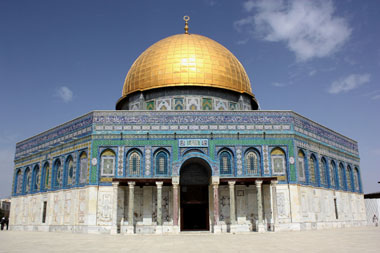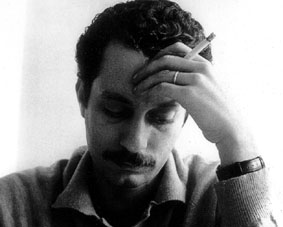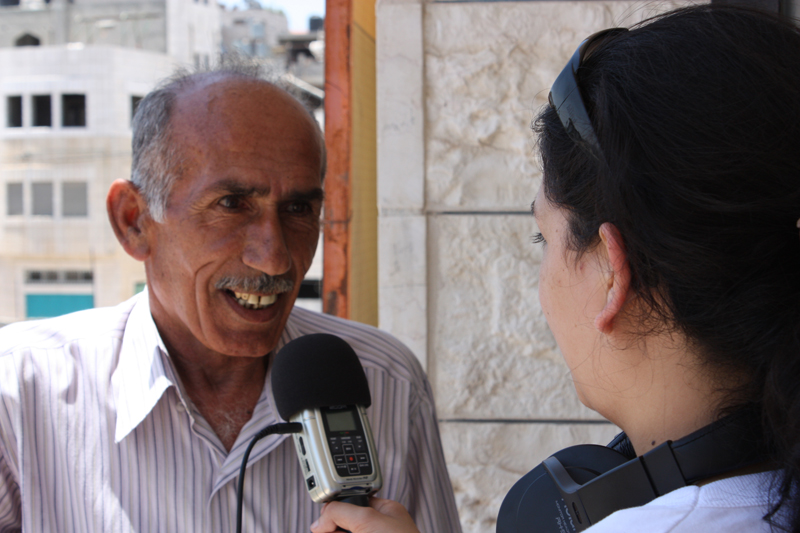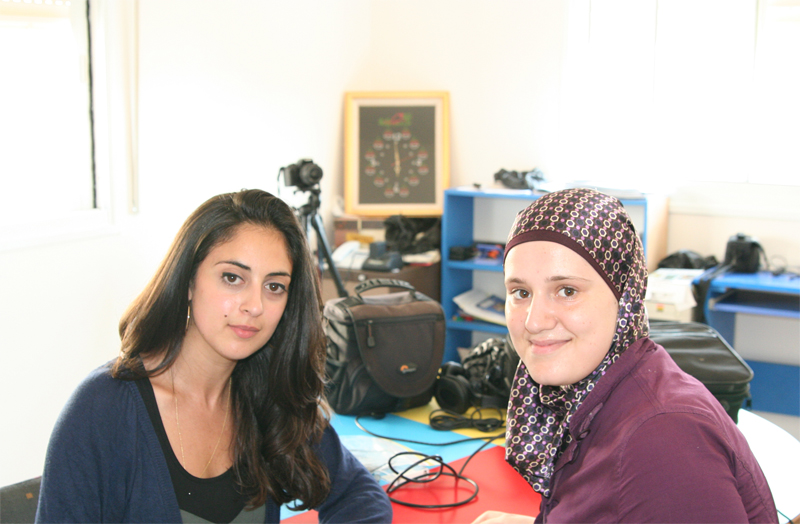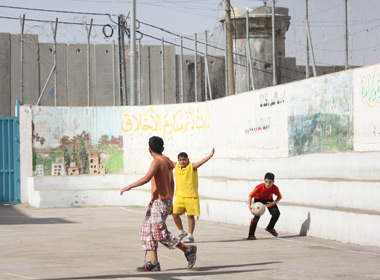Shadia Mansour is a Palestinian artist who is based in the UK. Her medium is Hip Hop and she believes that it is the next crucial phase in Palestinian resistance. Here in the West Bank we have a mixed reaction to this genre of music – many people feel that it doesn’t reflect our culture.
(Opens with the sound of a woman’s voice – Shadia Mansour – singing ‘On This Earth Is What Is Worth Living’ a poem by Mahmoud Darwish.)
HIBA AL AZRAQ: As a Palestinian living abroad, how have you managed to stay true to Palestine and continue to feel Palestinian?
SHADIA MANSOUR: I’ve always felt Palestinian because it’s who I am, and it’s how my parents raised me to be. They taught me that if I don’t know where I’m from then I don’t know where I’m going. You know, I’ve always felt close to my heritage. From the music…You know, listening to music of Fairouz and Marcel Khalife and all these respected musicians and also my parents used to take me to demonstrations a lot when I was younger so I knew about the situation in Palestine from a very young age and this is what brought me into hip-hop.
HIBA AL AZRAQ: You know every artist in the world has a message to pass through their art, so as a Palestinian rapper what’s the objective behind your music?
SHADIA MANSOUR: I would say maybe being a female in hip-hop, it’s hard to try and convince more conservative Arabs that it’s OK that we can actually share our message and our outlook, our perspective on the situation. And also just express ourselves as Palestinian women. I feel that’s really, really important. Palestinian women played a very, very important role through the history of Palestine. The Palestinian woman is the lighthouse, is the strength behind the family and I think that in hip-hop that has to show – that has to come out that women are just as equal in resistance.
HIBA AL AZRAQ: But you know most Arab people think that rap is a style of music that is filled with hate and anger…Do you think that’s true somehow?
I think that they’re watching the wrong type of channels. If someone tells you to watch MTV and you only watch MTV and that’s the only thing you know, then that will only result in narrow-mindedness. But if you look hard enough and you listen to what the children are saying – to what I’m saying, to what anyone’s saying then you know, you’ll judge from what the person’s message is not from what you’ve seen on TV. You know, you have to have an open mind with these things. Arabic music for me you know, is the same. I don’t listen to the commercial Arabic music. I still listen to Mohammed Abdul Wahab, I still listen to Ess Mahad I still listen to Fairouz. And there’s a difference between many Arab artists, it depends what you like. And you can’t judge. You know, if I see a commercial video – an Arabic music video on TV for the first time, I can’t say well this is what Arabic music is. And it’s the same with hip-hop. You can’t say that the one thing you see generalises what hip-hop is.
HIBA AL AZRAQ: We all know that rap is a Western style of music and most Arabs think that it doesn’t really reflect our culture and customs as an Arab society or as a religious society. It contains a lot of swearing and people because of what they see in the Western music they think that Arab [hip-hop] is the same also…So, how do you defend this?
SHADIA MANSOUR: It doesn’t represent our culture but it can represent our culture. It depends on what you’re representing as a person. If you’re an artist who represents luxury and women and money, then you know, that’s what you do. But I don’t represent that, I represent our culture. I put my culture on the frontline of what I do. From everything I do; from the way I dress on stage, to what I’m saying in my songs and what I believe in. This is what represents me and obviously what represents me as a Palestinian. I think that we really need to start to open our minds more to Arabic hip-hop only because we are running out of options – we are running out of solutions to try and get the message across. There’s no point anymore in trying to get the message to our own people we need to get the message out globally. And, hip-hop is global. Hip-hop comes in all languages. You know, we have the right to involve the Arabic language in hip-hop. And that’s what will carry the message – our language, our struggle and us as diaspora.
HIBA AL AZRAQ: If you had something to say to the Palestinian people, what would it be?
SHADIA MANSOUR: I would say, please give us a chance and we need your support. We can’t do this on our own. One of the biggest problems we have as Arabs is not being as one. We are artists of resistance and we need support from our own people before we get support from the Western world. And that’s my message and also that we come here not for a holiday, we come here to remind ourselves who we are, to remind the people here that we know what’s going on and we carry the message with us wherever we go. And that’s a responsibility that every single Palestinian should carry.


